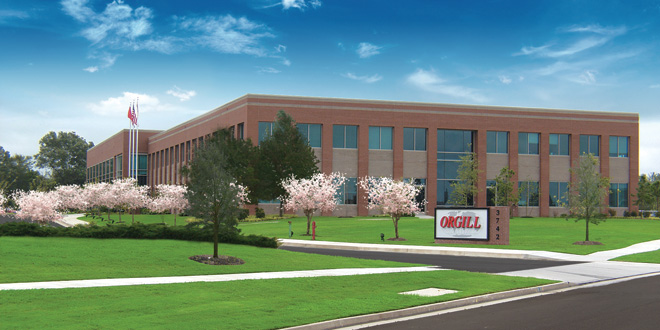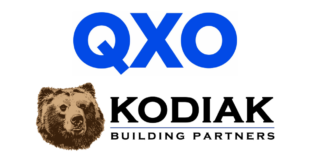Orgill, Inc. has been one of the industry’s fastest-growing distributors over the last several decades. During this time, the Memphis-based company began looking at ways it could help solve some of the challenges that it felt retailers were facing when it came to growing their operations. The result was the formation of a group named Tyndale Advisors.
We sat down in an exclusive interview with Ron Beal, Orgill’s president, CEO and chairman, to discuss the formation of Tyndale Advisors, the services it offers retailers as well as the relationship between Orgill, Tyndale Advisors and the Central Network Retail Group (CNRG).
Could you start by telling us exactly what Tyndale Advisors is?
Ron Beal: Tyndale Advisors is a wholly owned subsidiary of Orgill, Inc. formed to identify and find solutions to issues facing independent home improvement retailers in today’s fiercely competitive marketplace. Tyndale offers a range of sophisticated consulting, marketing, management, human resources and systems services to retailers that are available on an a la carte fee basis.
When and how was Tyndale Advisors first formed?
RB: Tyndale was formally established in late 2010, but its genesis was earlier. During the 1990s and first decade of the 2000s, Orgill became firmly established as one of the most reliable and efficient distribution companies in the world. It was widely recognized as being a primary low-cost provider servicing the independent home improvement industry.
However, we realized that many of Orgill’s customers were increasingly facing issues that went well beyond what we could address within the boundaries of the traditional distributor function of being a source for products.
What were some of these issues?
RB: One that was very common concerned generational transfer. A significant number of independent hardware and building supply companies were formed after World War II to satisfy the unprecedented home building fueled by GIs returning home and starting families. As many of these companies passed on to second and third generations of family ownership, they simply ran out of family members interested in running the family business. Finding ways to transfer these businesses to successful new owners was of great concern– to the owners, the communities in which they operated and certainly to us as a supplier.
In some cases, families wanted to maintain ownership and perpetuate the business, but weren’t prepared or weren’t able to actively manage the day-to-day operations.
We also realized that small businesses in all segments were facing many new challenges. The complexities of operating even a single-unit retail outlet due to changes in competition, government regulation and technology were increasing exponentially. Mass merchandisers, Internet direct merchants, exploding growth and sophistication of information technology, social media, as well as complex and confusing tax, wage, health care and product liability regulations were just some of the issues making the operation of small and midsize businesses difficult.
What was Orgill doing to address these issues?
RB: We had already successfully laid the foundation by providing a wide range of products and merchandising services. These allowed the local retailer to compete on price and assortment, and to promote the identity and reputation of the individual store in the retailer’s local market, without sacrificing independence. We did a great deal of market research and adapted micromarketing concepts to assortment planning, retail pricing and local marketing. We focused on being easy to do business with, and supported practically all of the point of sale systems being used.
These tools were embraced by thousands of home improvement retailers, large and small, throughout the country. For many of our customers, this was enough, but we knew for others, we needed to take the concept of retail service provider to new levels.
Why did Orgill need a separate entity to address these issues?
RB: We knew that the issues facing the independent home improvement retailers created opportunities along with the challenges. Tyndale Advisors resulted from the search for solutions to these challenges and opportunities. It was the product of research, planning, networking, timing and good luck.
While a number of the issues retailers faced were being successfully addressed organically, the demands of improving and growing our distribution network during and immediately following the housing downturn sometimes made it difficult to focus management resources on addressing some of the more complex retailer issues. It became evident that a separate, retail-oriented focus that could leverage the company’s substantial experience and resources without diluting efforts to improve our distribution and merchandising capabilities was needed.
Once you identified this need, how did it come together?
RB: We were very fortunate in our timing in that Boyden Moore, with whom we had worked closely for several years while he was at Marvin’s Building Materials, had made the decision to leave Marvin’s and concentrate on developing solutions to many of the same retail issues that we had identified at Orgill. After a number of discussions, it became apparent that, by joining forces, we could best achieve our common objectives. Orgill formed Tyndale Advisors as a wholly owned subsidiary company with Boyden as its president. Tyndale was soon involved as consultant to a number of retailers on various issues impacting their business.
One of our early conversations was with Jim Smith, the owner and president of Home Hardware Center in Natchez, Mississippi, and a long-time Orgill customer. Jim was one of the first to identify the need for a generational transfer solution for retail operators, and had himself purchased and successfully integrated a number of locally owned and operated hardware stores and home centers.
Jim was interested in continuing to grow his operation through this method, and knew firsthand a significant number of viable, local retailers in the industry looking for a succession solution. He indicated one of his main challenges was developing the management and systems infrastructure needed to successfully operate a large and growing organization. He felt that Tyndale Advisors might be a resource in solving some of these problems.
Is this when CNRG started?
RB: Not immediately, but shortly thereafter. Discussions between Home Hardware and Morrison Terrebonne Lumber Center in Louisiana took place about this time, and quickly gained momentum. Town & Country Hardware in North Carolina quickly followed. The owners of these companies agreed to join forces and create a new entity by pooling the equity in their individual businesses to pursue growth opportunities and that’s how CNRG was formed. They had determined that in order to be successful in this innovative new endeavor, they would require a degree of centralized management and systems infrastructure well beyond their current capabilities. They also needed a relationship with a low-cost, full-service distributor that would allow them to focus on maintaining and promoting the individual brands of the member companies, and simplify the purchasing process. The services of Orgill and Tyndale Advisors were ideally suited to meet these needs.
In May 2011, CNRG was officially formed. Tyndale Advisors agreed to serve as the central office for CNRG on a fee basis, and also accepted a minority equity interest as security for the investment in operating systems and personnel required to provide a high-quality of centralized management services. In turn, the CNRG retailers offered to provide financial operating data back to us and serve as a real-world laboratory for testing new programs that Orgill and Tyndale might develop.
CNRG soon became a reality as a very unique company, quickly adding various brands and store formats in different areas of the country with central management functions outsourced to Tyndale Advisors, but with an independent board of directors providing strategic guidance and oversight. Jim Smith was elected chairman, and Boyden Moore was appointed president as part of the services provided by Tyndale.
Do you feel this arrangement has worked out well?
RB: It definitely has. Today CNRG is made up of 15 different and distinct brands, operating more than 80 stores in 10 states. While CNRG is an acronym for Central Network Retail Group it is also a play on the word “synergy,” which is exactly what the company focuses on creating and maintaining. They have grown by providing solutions to owners faced with generational transfer situations, as well as organic expansion within brands. The CNRG owners have been very selective, and have focused on finding good businesses with strong local brands. They have passed on more opportunities than they have acted upon. They have also been very sensitive to potential overlap issues with existing Orgill retailers. They are committed to maintaining these strategies going forward.
How has Orgill benefited from this relationship?
RB: For Orgill, probably the most exciting part has been the tremendous progress made in developing the programs and specialized personnel required to support local brands in local markets, while providing high levels of management oversight and systems sophistication that most of these companies were lacking. In every single case, the profitability of a new member company has been improved after becoming a part of CNRG. The combination of outsourcing central management functions to Tyndale Advisors, concentrating purchases with Orgill, and allowing the individual brands to fully focus on successfully operating in their local markets has proven to be a winning formula.
What were some of the systems solutions Tyndale addressed or is addressing?
RB: Today, Tyndale is currently concentrating on four major areas: (1) Management Services (2) Marketing Services (3) System Services (4) Human Resources and Benefits. All of the programs were initially developed for the CNRG stores, then implemented and thoroughly tested with the ultimate goal of rolling these out to other Orgill retailers.
John Sieggreen, who has an extensive background in retailing with some of the industry’s best known companies, was brought on board to concentrate on the daily operations of CNRG. This allows Boyden to devote much of his time to expanding and making available these newly developed services to other Tyndale and Orgill customers.
One of the first challenges was getting IT systems standardized, simplified and scalable. To do this, the Tyndale team worked with Mi9, a leading provider of retail software solutions, to develop a data warehouse solution that maintained existing POS system relationships with several of the industry’s premier providers, especially Epicor. Using Orgill’s product database as a starting point, they also assigned common SKU numbers to every product carried in any of the CNRG stores. They now have a very workable template for getting a retail store’s IT system integrated quickly.
Another area Tyndale addressed was marketing services. Greg Stine and his experienced Springfield, Oregon, based marketing firm initially were contracted as a third-party solution for providing some of the marketing services needed to support Tyndale Advisors customers’ brands. They performed so well that Greg and his entire group were soon brought on board. They are now Tyndale employees charged with supporting the marketing, advertising and brand building efforts for Orgill, along with the 15 CNRG brands and other Tyndale Advisors’ clients.
However, some of Tyndale’s most important advances involve the more mundane business tasks such as payroll maintenance, human resources management, insurance and training. A combination of in-house and contract specialty resources are concentrated on these issues.
Others areas involve cutting-edge social media programs, training programs and best practices standards.
What’s next for Tyndale Advisors?
RB: We’re in the process of making Tyndale’s full range of services available to all Orgill customers. In fact, the Springfield marketing team already functions as the marketing department for several well-known home improvement retailers, in addition to the CNRG brands.
We hope to expand other services like payroll, insurance evaluation and systems management to other non-CNRG customers as well.
Significantly, Tyndale is now in a position to provide complete, centralized management services to individual retail owners as well as local and regional chains, which was one of the primary initial objectives.
What’s next for Orgill?
RB: We’re convinced that in order to fulfill our mission of finding ways “To Help our Customers be Successful,” continuing to expand the range and sophistication of our service offering will be crucial.
Boyden Moore has recently taken on the additional role of general manager of retail for Orgill, charged with implementing the new Tyndale developed programs as part of the Orgill offering. This change will allow him to better coordinate with other Orgill senior managers, especially with Brett Hammers, general manager of sales and purchasing, in the areas of purchasing and merchandising.
Would you say the plan has worked out the way Orgill envisioned?
RB: Most definitely. For the first time, independent home improvement retailers have a full range of management options available to successfully operate their businesses and support their individual brands in their local markets.
 Hardware Retailing The Industry's Source for Insights and Information
Hardware Retailing The Industry's Source for Insights and Information








